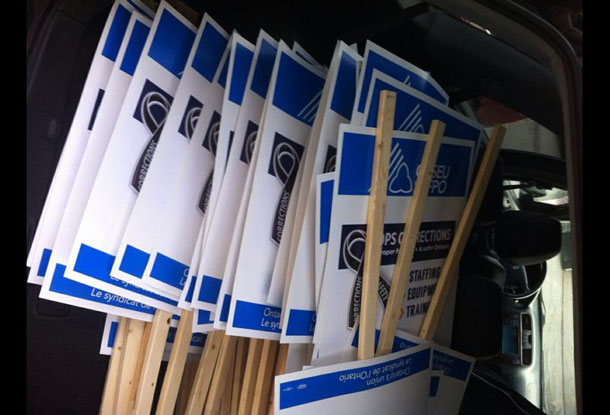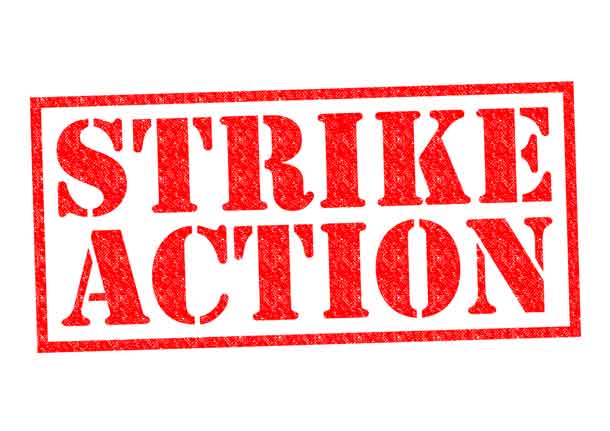 THUNDER BAY – The Ontario Secondary School Teacher’s Federation has started strike action. Here in Thunder Bay, the OSSTF have outlined what that means for teachers. The job action includes a refusal by teachers to engage in supervisory action. School Principals are concerned over that move.
THUNDER BAY – The Ontario Secondary School Teacher’s Federation has started strike action. Here in Thunder Bay, the OSSTF have outlined what that means for teachers. The job action includes a refusal by teachers to engage in supervisory action. School Principals are concerned over that move.
The Ontario School Principal’s Council state, “While principals respect the collective bargaining process and the roles that the government, school boards and unions have to play in resolving contract issues, the withdrawal of supervision as a result of this strike will jeopardize student safety”.
“The only way to ensure that students are safe is to have an adequate number of teachers and trained adults supervising in the school every day. If this supervision is withdrawn, or if on-calls for absent teachers are not covered, schools will not be safe places for learning,” said Ken Arnott, President of the Ontario Principals’ Council (OPC).
According to principals, the vast majority of suspensions are a result of incidents that occur in areas of the school that are difficult to supervise. Without any supervision, students will be especially vulnerable.
“In secondary schools, inadequate supervision can result in an increase in bullying, vandalism, assaults, behavioural issues, theft, graffiti, drug activity, truancy and verbal abuse,” added Arnott.
While the impact of sanctions will vary from board to board, the OSSTF has also indicated that its members are not to administer government-mandated EQAO tests; attend any staff, board or ministry meetings; or communicate with parents after school hours. Some local unions have indicated they will not complete report cards. All of these actions will have an impact on students and their parents, but the most immediate concern for principals and vice-principals is keeping schools safe.
The strike will also impact elementary schools, as support staff in a majority of public school boards across the province are members of OSSTF. That will mean that supervision may also be restricted in elementary schools for children as young as 4.
The OPC has been advocating for increased supervision for many years, developing and releasing Supervision Standards for Schools in 2007. At that time, data was collected from over 1400 principals and vice-principals who reported major challenges in their schools due to inadequate supervision, the most dangerous consequence being the direct risk to student safety.
In many boards, principals have been directed to supervise the school in the absence of teachers and support staff. This will leave principals unable to adequately perform responsibilities such as dealing with emergencies, board matters, discipline issues, individual student concerns, parent needs and instructional duties. Not only is this alternative an impossible substitute, but it is clearly not the way that school leaders, hired to be the instructional leaders in schools, should be spending their time.
Many boards have developed contingency plans outlining how principals are to proceed during the strike. Some of those plans include directions on hiring temporary staff to fill the void, a process that will be costly for budget constrained boards and lengthy, given the background checks required.
“School principals cannot keep their schools safe or adequately manage their schools once this strike starts,” continued Arnott. “The government and the unions, in consultation with school boards, need to resolve this impasse and leave the kids out of it.
“While the government and school boards share our concerns and have indicated that they are not prepared to jeopardize student safety, any short-terms measures to try to deal with this strike will not be sustainable if supervision is withdrawn,” added Arnott.





